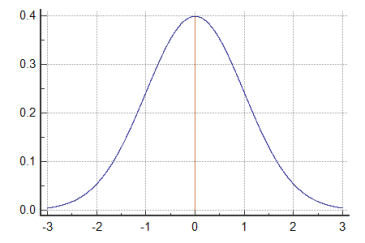
Andrew was always a high achiever. He got straight A’s in high school, was valedictorian, and assistant captain of the basketball team. Andrew would often spend long evenings on the weekdays and even some of the weekends studying. His parents reassured him he was developing good habits.
When Andrew was 17, he graduated high school, and started university. As in high school, he spent much of his time studying. He put considerable effort into his academics. Unfortunately, a few weeks into his first semester, Andrew forgets to hand in a major project. A few weeks later, he doesn’t do well on a test. Andrew begins to panic and decides to see his doctor.
“Doc, there’s something happening to me.”
“What makes you say that, Andrew?”
“I think my brain is… failing or something. I’m struggling so much at university and I never had any trouble in high school at all…”
Attention-deficit/Hyperactivity Disorder (ADHD) is a neurodevelopmental disorder that affects attention. You can read more about ADHD here. What does neurodevelopmental disorder mean? In general, this term refers to any problem which may arise during brain development. While brain development occurs to some extent throughout our lives, the major development of the brain happens while we are still a fetus! This means that our understanding of ADHD is that it develops before we are born, as a result of numerous genetic, environmental, intrauterine factors.
Andrew might have ADHD. So how does that make sense, given what we know about ADHD? If ADHD exists from birth (probably), how is he only having problems now?
What Andrew is describing may be what is known as adult ADHD. What is adult ADHD? Well, it’s the same as ADHD! And it’s also present from birth. The only difference between adult ADHD and ADHD is that adult ADHD has been, until adulthood, undiagnosed, for a variety of factors.

ADHD screening is usually initiated by primary grade school teachers. Sometimes I meet kids from lower serviced neighbourhoods and poorer schools that simply were not given the opportunity to be screened as a child. I meet kids who were recommended to be screened as a child by their teachers, who have parents which declined the screen for any number of reasons, including not believing in ADHD and religion. I often meet women (and some men) who have gone undiagnosed, despite having struggles with academics when they were younger, because they have the “less obvious” inattentive subtype (previously known as ADD). Other times, I meet children who have been able to compensate for their natural attention abilities in their brain, for example by excessive studying (4+ hours a day in some cases) and who have flown under the radar. These kids often run into problems as they move through the academic system and the demands of the program exceeds their ability to compensate.
Andrew is an example of one of these children. He was likely able to compensate for a naturally lower attention span/hyperactivity in high school, and these coping strategies were likely overwhelmed when moving to post-secondary. Features of ADHD in adults can include mood swings, impulsive anger, losing keys, forgetting appointments, trouble holding down a relationship, and trouble holding down a job. Fortunately for Andrew, medications for ADHD are 85% effective, among the most of any drug! Ever.
So did Andrew develop ADHD? No. ADHD is a neurodevelopmental disorder, and is (in all likelihood) present since birth.
Editor’s note: There are however other illnesses which can affect attention which can develop later in life. Depression and anxiety, for example. One thing that is not ADHD, which I often see college age kids asking about, is marijuana. Marijuana interferes profoundly with attention is my most likely suspect when a marijuana user presents with new symptoms of inattention.
Dr. Travis Barron is a resident physician in Toronto, Canada.







 If you recall, neurons are like wires. Like wires, messages can pass down nerve bundles in both directions. Messages can be sent from the heart to the brain (as in a heart attack), or from the brain to the heart. In panic attacks, our brain “hijacks” our natural nerve circuitry and sends the message in the opposite direction (brain to heart). This causes the cycle (chest pain -> brain aware -> anxiety) to reverse (anxiety -> brain aware -> chest pain)!
If you recall, neurons are like wires. Like wires, messages can pass down nerve bundles in both directions. Messages can be sent from the heart to the brain (as in a heart attack), or from the brain to the heart. In panic attacks, our brain “hijacks” our natural nerve circuitry and sends the message in the opposite direction (brain to heart). This causes the cycle (chest pain -> brain aware -> anxiety) to reverse (anxiety -> brain aware -> chest pain)!








